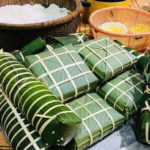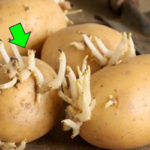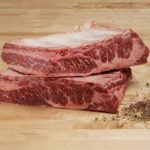The cold weather is the perfect time to eat hot pot. Hot pot restaurants also become crowded with customers. When eating hot pot, there are some rules you need to remember to avoid harming your health.
3 items not to order when eating hot pot:
– Meatballs, beef balls, shrimp balls, squid balls
Meatballs are the usual ingredients for hot pot, loved by many people. However, you should limit eating this type of food.
The reason is that meatballs are usually made from leftover pieces of meat. Many businesses, for profit, can mix old meat and spoilage meat, and use additives to enhance the flavor and cover up the odor of the meat. After processing, despite using ingredients that do not guarantee quality, the meatballs still have a delicious taste due to the use of additives. In addition, flour is a type of ingredient that is added quite a lot in ready-made meatballs. Therefore, when eating out, you should limit the use of meatballs because eating them may not provide nutrients and can even be harmful to the body.
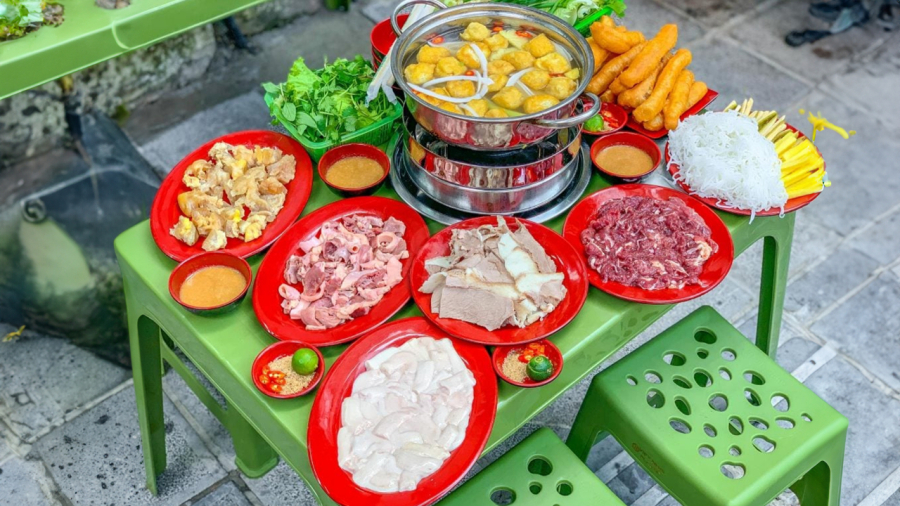
– Squid
Squid is a dish served quite often at hot pot and grill restaurants. This is a type of food that is regularly frozen, so it is difficult to determine the storage time. Squid can be stored for many months or even a year before being served to customers. In reality, there have been many cases of spoiled squid being soaked in chemicals to bleach and remove odors before being served in restaurants.
Therefore, you should carefully consider before ordering squid. It is best to choose addresses that serve fresh squid, prepared on the spot.
– Duck blood curd
Duck blood curd is a popular dish when eating duck hot pot or duck with sour soup. When eating duck blood curd, customers find it difficult to know whether this dish meets hygiene standards or not. The amount of blood in a duck is not much, so to have enough ingredients to serve customers, restaurants may mix other components, blood of other animals into duck blood curd.
Therefore, you should consider carefully before eating duck blood curd. Of course, we need to particularly avoid eating raw duck blood curd because it can cause gastrointestinal diseases, increase the risk of infection with parasites such as worms, flukes.
Notes when eating hot pot:
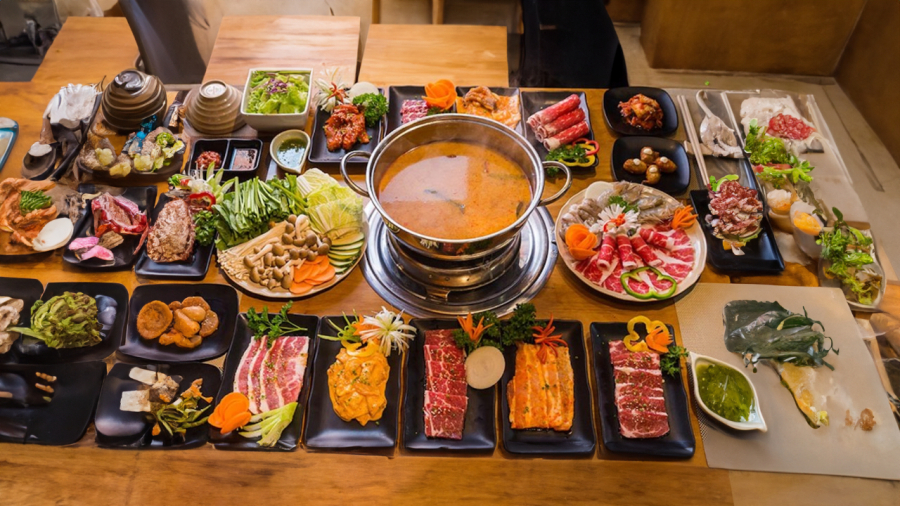
– Eat fully cooked, drink boiling water
The characteristic of hot pot is using raw ingredients dipped in hot broth to cook. Therefore, when eating hot pot, you should make sure that the ingredients are kept in the pot until fully cooked before picking them out. If you only dip them in hot pot broth for a few seconds, the food may not be fully cooked and the bacteria, viruses, and parasites on the food will not be eliminated, posing a danger to the consumers.
– Avoid eating excessively spicy or hot food
To ensure good digestion, you need to limit eating excessively spicy or hot hot pot. The mucous membranes in the mouth and stomach are all very fragile. Eating excessively hot food can damage the mucous membranes and cause soreness. Repeatedly doing this can cause permanent damage and increase the risk of developing K cells.
Eating excessively spicy hot pot is also not really good for health. It can lead to many digestive problems.
People who should limit eating hot pot:
– People with stomach problems
Spicy hot pots such as spicy Thai hot pot, spicy chili hot pot, kimchi hot pot… can provide a stimulating taste but are not suitable for people with stomach problems. When the stomach is problematic and eating spicy and hot food, the condition can become more serious.
– People with gout
Hot pots usually have a lot of ingredients, with the main ingredient usually being meat or seafood. Gout patients need to limit eating too much meat. When eating hot pot, this group of people should choose to eat a small amount of meat, avoid seafood and animal organs; avoid vegetables with high purine content such as cabbage, carrots, potatoes, seaweed, etc.
– Overweight, high blood fat people
This group of people should choose hot pots with clear, mild broth instead of hot pots with a lot of oil. In addition, pay attention to food choices, limit eating dishes that contain too much fat and high energy.
- Ensure all ingredients are fully cooked in the boiling broth before consuming. This helps eliminate bacteria, viruses, and parasites, ensuring food safety.
- Avoid overeating spicy or hot pot. Excessive spiciness can damage the sensitive mucous membranes in the mouth and stomach, causing soreness and potentially increasing the risk of developing K cells.
- People with stomach problems, gout, or those who are overweight should limit their hot pot consumption. Choose clear, mild broths over oily ones and avoid dishes with high fat and energy content.
8 Common Mistakes People Make with Cutting Boards
Are you using your cutting board correctly? Many Vietnamese households rely on cutting boards in their kitchen, but not everyone knows how to use them properly, especially when it comes to wooden cutting boards. Check out these 8 mistakes to avoid when using a cutting board to ensure both hygiene and safety for everyone in your family.
Is Refrigerated Leftovers Linked to an Increased Risk of Cancer?
Dr. Lam Van Man, Head of Research, Development and Technology Transfer Department of the Institute of Safety Food, has warned of the risk of food poisoning when reheating leftovers from the refrigerator. But what should we be aware of when it comes to the possibility of these leftovers causing cancer? Here, we explore what the experts have to say on the matter and offer some tips for safe eating.
Preserving Leftover Food from the Tet Holiday
With the beginning of the Lunar New Year, many households are stocking up on food to celebrate the festive occasion. While keeping food in the refrigerator is convenient, it can also be harmful to users if not done correctly. We have compiled a few tips to help ensure food remains fresh and safe to consume during Tet.




























